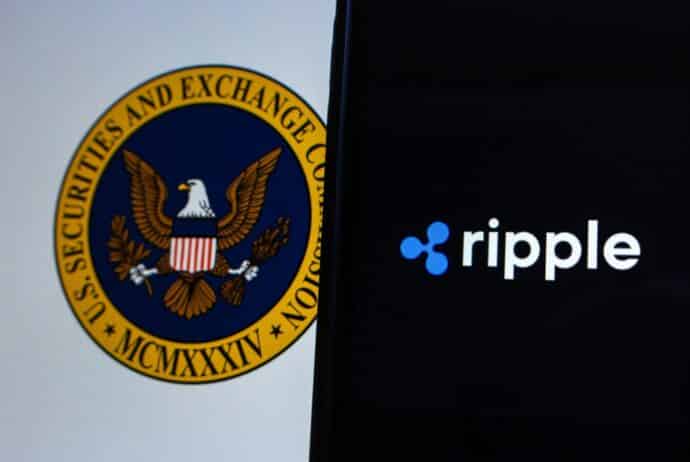Key Insights:
- Ripple’s reduced $125M fine is a win, but years of legal battles leave lingering uncertainties for the crypto industry.
- Judge Torres’ ruling on XRP’s status adds legal complexity, distinguishing retail sales from institutional ones.
- The SEC may appeal, focusing on Ripple’s programmatic sales, signaling potential further legal challenges.
Ripple recently announced the end of its lengthy legal dispute with the United States Securities and Exchange Commission (SEC). On August 7, Ripple CEO Brad Garlinghouse highlighted the favorable outcome of the case, noting a significant reduction in the penalties imposed by the court.
However, while Ripple declared victory, legal experts have expressed reservations, suggesting that the conclusion of this phase might not represent the end of the legal battle. Additionally, doubts persist about whether this development constitutes a decisive win for Ripple or the cryptocurrency industry as a whole.
Court Reduces Penalties, but at What Cost?
Judge Analisa Torres played a central role in determining the outcome of Ripple’s case, significantly lowering the SEC’s proposed fine from $2 billion to $125 million. Ripple has touted this reduction as a major victory, with Garlinghouse asserting that the ruling is a triumph for both the company and the broader cryptocurrency community. The announcement led to a 26% surge in XRP, Ripple’s cryptocurrency, as investors responded positively to the news.

CypherMindHQ.com Artificial Intelligence Crypto Trading System - Surpass the competition with this cutting-edge AI system! Utilize the prowess of innovative algorithms and amplify your crypto trading strategies with CypherMindHQ. Learn more today!
Despite the favorable ruling, some legal experts caution against viewing the decision as a complete success. Philip Moustakis, a lawyer at Seward & Kissel and a former SEC counsel, pointed out that the costs associated with Ripple’s defense, the imposed fine, and the disruption to its business over the past four years have taken a toll.
Moustakis remarked,
“Ripple is a winner, but I think in the grand scheme of things, if you have to be embroiled in litigation for years, have your asset, your token, be delisted from exchanges at least for some period of time, fight with a regulator, pay a large fine — that doesn’t feel like a win.”
Legal Uncertainty Surrounding Cryptocurrencies Persists
A key issue raised by the Ripple case is the ongoing lack of clarity regarding the application of U.S. securities laws to cryptocurrencies. Although Ripple may have emerged from this particular battle with a favorable outcome, the broader implications for the cryptocurrency industry remain unclear. The court’s decision does not resolve the fundamental question of whether or not cryptocurrencies should be classified as securities under U.S. law.
Moreover, the court’s ruling has introduced new complexities. In July 2023, Judge Torres determined that XRP is not a security when sold to retail investors but classified it as a security when sold to institutional investors. This distinction adds a layer of uncertainty for other cryptocurrency companies and investors, who must navigate a legal landscape that lacks clear, consistent guidelines. As a result, the case may have broader ramifications for the regulation of digital assets in the United States.
Potential for SEC Appeal and Future Legal Challenges
The SEC has until early October to file an appeal against the court’s ruling. Legal experts believe that the agency may challenge aspects of the July 2023 decision, particularly the ruling that XRP is not a security when sold to retail investors. According to legal experts like Joe Castelluccio, a partner at Mayer Brown, the SEC is likely to pursue an appeal given its previous efforts to challenge similar rulings.
Should the SEC choose to appeal, the focus is expected to be on the court’s decision regarding programmatic sales. Attorney Jeremy Hogan commented on this possibility, noting that if an appeal is filed, “the focus will be on the programmatic sales for sure.” The SEC’s position could be strengthened if it successfully argues that Ripple’s cross-border payment service, On-Demand Liquidity (ODL), violates securities laws.
Although the court did not explicitly find that ODL sales were illegal, the SEC has suggested that Ripple’s willingness to test the boundaries of the summary judgment order indicates a likelihood of future violations.

CypherMindHQ.com Artificial Intelligence Crypto Trading System - Outpace the competition with this high-end AI system! Leverage the capabilities of progressive algorithms and enhance your crypto trading performance with CypherMindHQ. Learn more today!
Christopher LaVigne, a partner at Withers, added that the potential for further litigation remains, stating, “Does it end litigation between the parties? I don’t know if it does.” The possibility of ongoing legal challenges highlights the uncertainty that still surrounds Ripple’s operations and the broader cryptocurrency industry.



